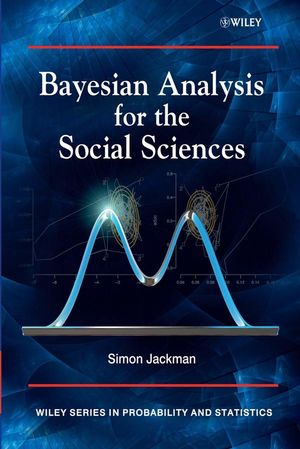Bayesian Analysis for the Social SciencesISBN: 978-0-470-01154-6
Hardcover
608 pages
December 2009
 This is a Print-on-Demand title. It will be printed specifically to fill your order. Please allow an additional 10-15 days delivery time. The book is not returnable.
|
||||||
Connect with Wiley Publicity
The first text to focus on Bayesian methods specifically for students of social sciences has now been published by Wiley-Blackwell. Bayesian Analysis for the Social Sciences provides an accessible introduction to Bayesian methods, containing many real examples from research in political science, psychology, sociology and economics.
Simon Jackman includes detailed descriptions of key Bayesian concepts, assuming little background knowledge. Each chapter contains graded exercises to help further the student’s understanding of the methods and applications.
Bayesian Analysis for the Social Sciences contains examples of how to implement the methods using WinBUGS and R, an open-source statistical software currently being developed to work in parallel with WinBUGS. There is also a website supporting the text, featuring WinBUGS and R code, data sets, and solutions to exercises.
Bayesian methods are increasingly being used to solve problems in the social sciences. They lend themselves naturally to these areas of research, where data is often qualitative, and based upon subjective expert judgments. The emergence of WinBUGS, a dedicated Bayesian analysis software — has given social scientists, at all levels, the power to solve problems in their work, that would otherwise require a very good understanding of complex Bayesian methodology.
Bayesian Analysis for the Social Sciences is an invaluable tool for graduate and postgraduate students in the social sciences, in such fields as political science, sociology, psychology, communications, education, and economics. It is also of interest to statisticians working on problems in the social sciences.



